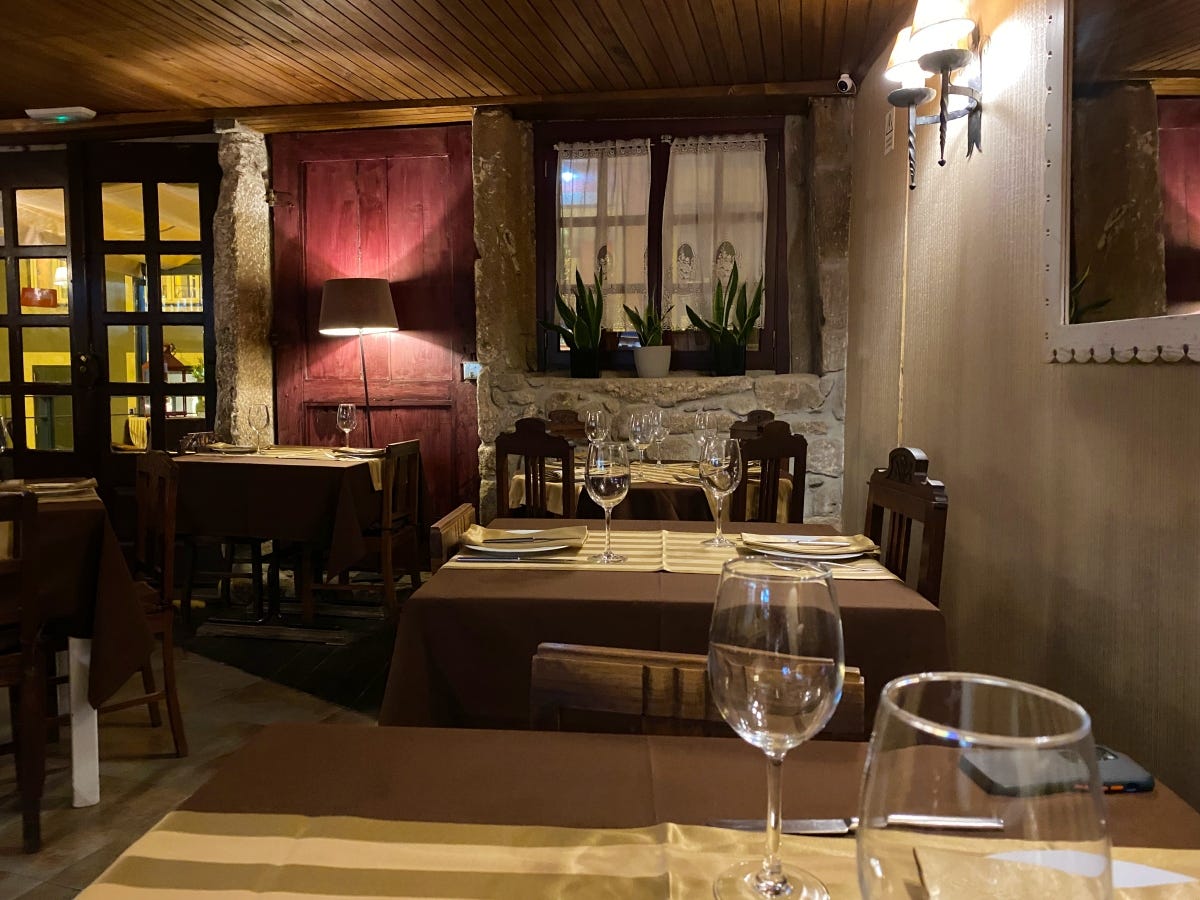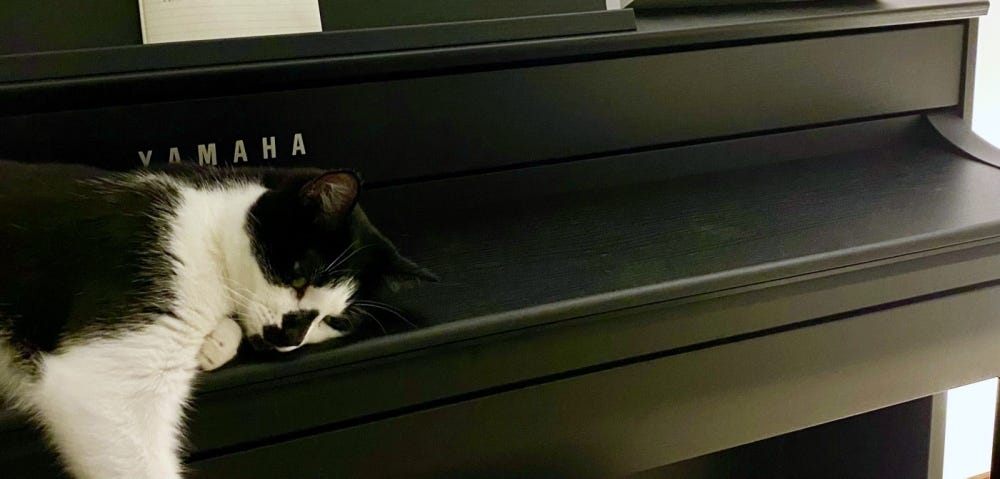We’ve lived in Portugal for the length of a human pregnancy - nine months since we left the United States.
I have some thoughts about how life feels now - particularly compared to the newness we felt six months ago.
1. Our lifestyle is slower in all ways.
It’s not something we’re aware of most of the time; we’ve finally just acclimated to the Portuguese pace.
It no longer feels annoying that almost nothing is open from Saturday at 1pm until Monday morning; it’s just the way things are. It’s become part of the weekly rhythm.
If I sit at lunch for two hours with a friend, that’s normal and appropriate. There’s no reason not to.
I know better than to stack appointments. I keep it to one per day, or if necessary I’ll do one in the morning and one in the late afternoon. I accidentally have one day next week with an appointment at 10am, a meeting at 11am, and another appointment at 4pm and I was horrified to realize what I’d done. It’ll be a miracle if I make it to everything.
This is maybe partly mentality, but it’s also practical. You never know when things will run half an hour late or more (or be right on time; there’s absolutely no predicting it). And you can’t count on the bus being on time. It might be up to five minutes early or it might be 15 minutes late.
2. Portuguese is muito difícil, but I’m going to speak anyway.
I inject “desculpe, o meu portugues é pequino” (sorry, my Portuguese is small) into nearly every interaction. Instantly the person on the other side smiles and says something friendly. They will often speak more simply, and I’ve been able to bluff my way through several basic conversations lately. Every time this happens I think I might explode with pride.
3. Eating out is part of the culture and we love it.
It’s something we were a little obsessed with before we moved. Eating out in the U.S. is usually expensive, especially if you want delicious food in a reasonably nice environment.
It’s not that way here, and people seem to eat out together all the time. It might be lunch in a cafe, late-afternoon espresso & pastry at your neighborhood place, or dinner in a nice Portuguese restaurant. Socializing around food is part of normal life.
While eating out for dinner isn’t cheap here, necessarily, it’s much easier than in the U.S. The affordability of wine (around 3€ a glass) helps, as does the lack of the 20% tip (the appropriate, optional amount is 1-2€, and servers don’t rely on it for their income). A dinner main at a nice restaurant will be between 15 - 20€, an appetizer around 7-10€, and dessert with coffee might be 6-7€ per person. Generally we can go someplace for a nice dinner for about 60€, or someplace more casual for 35 or 40€.
This helps the dating life of a marriage.
4. There are a couple of Portuguese things that we find annoying.
The biggest one is honking. It’s common for someone to park right behind a few other parked cars (parking is muito difícil) and run into a store. That person will probably not run, though, nor will they be in a hurry to return.
Their car will block traffic, or someone they caged in will want to leave, and this will cause immediate irritation. The blocked driver will begin to honk. There will be a few short honks at first, then longer and longer honks until they’re essentially napping on top of their horn. You’ll hear it from blocks away, and they will continue to honk for as long as it takes - five minutes, ten minutes, we can do this all day. It in no way seems to hurry the person inside the store.
We understand what’s happening and why it’s frustrating for the driver…but still it instantly sets everyone’s tempers in this house on edge.
My other, lesser annoyance is the sidewalk-hogging. Small units of people like to spread across the sidewalk and walk very slowly. Chatting, laughing, attending to the baby in the stroller, whatever.
There is no notice taken of anyone who might wish to move past the group and proceed at a faster pace. You will simply have to wait until you get to an intersection or the group decides to stop at a store or cafe. I don’t notice anyone else asking to be excused and let through when they’re in this position; people seem to just fall behind and take it all in stride. So I do the same, but maybe with some light under-the-breath cussing.
I did just say our lifestyle has slowed. But this is a moment when I feel one thousand percent American.
5. One-stop shopping has been replaced by trips to at least six markets each week.
We get fish at the fish market and meat at the butcher.
We get bread at the sourdough bakery.
I get bulk goods, spices, and occasional vegetables from the farmers and vendors at the large municipal mercado.
We have a favorite chocolate place and a fancy-ish cheese shop for occasional treats.
We go to the supermarket for paper goods and other random things.
My primary source of food is our neighborhood market. It’s a few steps down the hill, owned and run by a no-nonsense Portuguese woman and her son, and it’s the joy of my life. I get produce, butter, wine, and eggs there. It smells funky like a neighborhood market should, is somewhat chaotic, and has a great wine section. It’s popular with locals.
I practice my Portuguese with the owner. She was a little chilly when I first started going there, but that changed the minute I tried a few words of Portuguese. Now she feels like a friend and she seems delighted every time I attempt to communicate. She’s a good person to practice with because she speaks zero English and, if my Portuguese is not fairly correct, she can’t understand me at all. She tells me what produce is good and what she likes. I absolutely love visiting her and sometimes practice phrases ahead of time to use.
Getting food is vastly more time-consuming here, but I prefer it. I like interacting with all the shop owners, I like making dinner based on what’s available, and food has become more interesting. Plus, J and I now cook dinner together several times a week. It’s removed the task of planning a week’s worth of menus for me, and instead we decide what to make based on what I found at the market. That can sometimes feel overwhelming at the end of a long day, but it’s usually rewarding and even fun.
6. I don’t miss the United States.
Not even a little. There are individual things I miss (specific products, mostly) but I can’t think of anything else.
The things that I would enjoy if we returned right now would be the wide roads and the ease of interacting in stores and restaurants. But I’m used to the way things are here, and it’s no longer tiring to continually engage when I’m not fluent in the local language.
There are a handful of friends that we miss on the East Coast. Those deep, real connections don’t happen often in life, and that was the hard thing to leave behind. We’ll always miss them, I suspect.
I have something huge and unpleasant to add to this.
I’m wrapping up a rough experience with covid. It was my first, and I was down for about six weeks. There was the initial infection, and then there were weeks of just not getting better. I ended up on steroids, then antibiotics and a host of other medications to try to kick the damn thing. There were two separate, semi-urgent trips to the doctor, and the second time things were starting to feel a little scary.
If I’d been in the U.S., I would not have sought medical attention until I was in serious trouble. I was around the corner from serious trouble on that second trip to the doctor and I’m confident that, in the U.S., my situation would’ve been more dire by the time I got help - and would’ve cost a fortune.
I got affordable medical attention exactly when I needed it (less than 100€ for everything), and now I am almost back to normal.
I can’t put into words how grateful I am to have had covid here and not in the United States. The ability to quickly go to the doctor when something is wrong - or the ability to easily get routine exams and tests that help avoid serious illness - should never be a costly luxury.
7. I’m a big fan of NOT driving.
Let me rephrase that: I’m a big fan of letting someone else drive while I stare out the window and don’t have to deal with the traffic.
I am not eager to own a car again (although J misses it). I prefer walking or taking the bus or occasional Uber - or the train, if I’m going to the next city. Even though I’ve always enjoyed driving, this not-driving season has noticeably reduced my daily stress. Walking has forced me to be more patient (okay, except when I’m on a sidewalk behind a slow-moving group) and to observe more. Same with the bus. It’s not always convenient but I appreciate it.
We’ll need a car again once we don’t live in a city center, and it will be nice to have. But I like this season of being car-free.
If you’re curious about how things feel in a new country once it’s no longer quite as new, I hope this has been insightful. I’m sure things will feel different another pregnancy length from now.
Wherever you are in the world, may your spring be peaceful and sunny and may your wine be delicious.






Hi!!! I loved reading this update. I still want to move to Portugal one day! Much love from Kentucky - Ellie
When you need to get past people, the phrase you need is "com licensa" (lee SEN suh) - it means "with licence" and it tells people you need to get past.
I guess we arrived at about the same time - around 9 months ago. I also continue to love it here. And you are so right about not scheduling more than 1 big thing in a day. Two appointments or even two big things you need to do leaves one feeling exhausted! I had a weekend with kids dentist appointments, and two birthday parties the kids had been invited to in the same day. I was DESTROYED at the end of that day, but just before I could collapse in bed, I realized the cat needed to go to the emergency vet for a urinary blockage. With the ongoing regular stuff of life and another return trip to the vet for major surgery I needed seriously 2 weeks to recover.